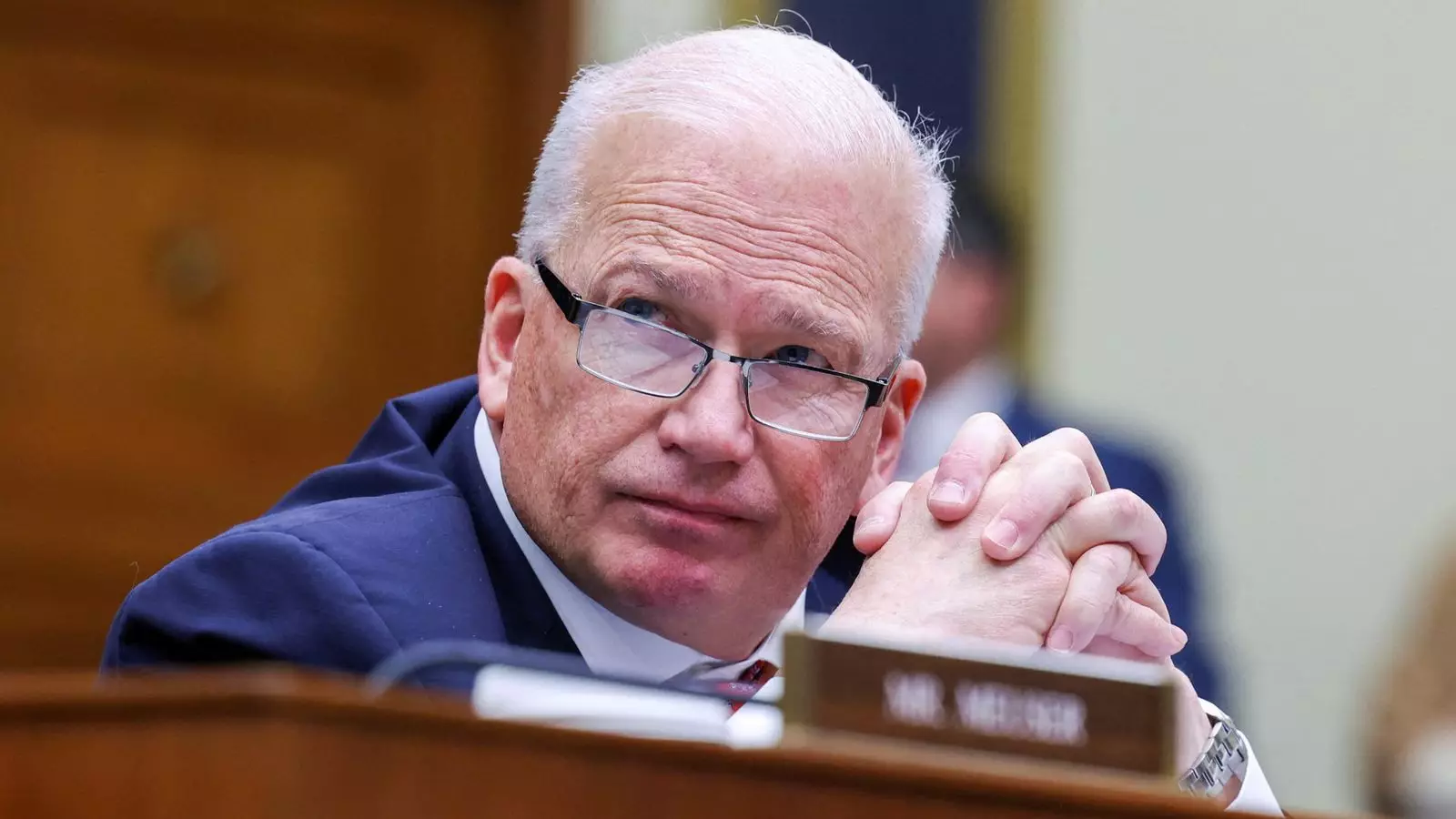In an era where corporate influence often masquerades as cooperation, the proposition that America’s tech giants might band together to oppose European regulations reveals a disturbing truth about the industry’s priorities: preserving profit at any cost. The notion, floated recently by a Republican senator, suggests that powerhouses like Meta, Apple, and Microsoft could formulate a collective resistance against laws designed to safeguard public interests. While on the surface this appears as strategic opposition, beneath it lies an unsettling mentality where corporate interests threaten to override democratic accountability and social responsibility. The idea of a coordinated front is less about defending technological innovation and more about consolidating unchecked influence over global digital spaces.
This scheme exposes a fundamental misconception: that these companies are benevolent entities interested in facilitating online safety or user rights. In reality, they are driven by the relentless pursuit of profit, which often conflicts with regulation meant to curb misinformation, protect privacy, and ensure fairness. The suggestion that they might unite against regulatory frameworks indicates a collective attempt to circumvent laws that threaten their dominance. Such collusion, whether formal or informal, undermines the principles of transparency and fair competition, turning the digital landscape into a battleground where corporate giants wield unchecked power.
The Dangerous Disconnect Between Corporate Interests and Democratic Values
What does it say about our democracy that some of the most influential entities on the planet are contemplating strategies to thwart public governance? The idea of a united corporate front in opposition to UK and EU laws raises serious questions about accountability. When companies prioritize their bottom lines over democratic processes, citizens’ rights become collateral damage. These regulations aim to address pressing issues like online safety, misinformation, and the protection of vulnerable populations—areas where tech firms have historically prioritized growth over social responsibility.
Promoting a strong regulatory environment isn’t about censorship or suppression; it’s about establishing boundaries to prevent monopolistic behavior, misuse of data, and harmful content proliferation. The notion that big tech might find common ground in resisting these measures reveals their discomfort with being held accountable for their influence. Such resistance threatens civil liberties, especially when those with vested interests conspire to weaken regulation under the guise of corporate unity. It suggests a calculated effort to delay or weaken protections meant to uphold democratic values and ensure that the digital economy serves the public interest, not just corporate profits.
The Flawed Narrative of Cybersecurity and Online Safety as Weapons of Political Manipulation
The trip by U.S. legislators into this murky arena blended concerns about regulation with underlying political motives. Accusations that UK laws are tools of censorship echo a broader narrative used to justify resisting necessary safeguards. The claim that UK attempts to regulate online content might threaten free speech is a dangerous oversimplification, often used to dismiss legitimate efforts to curb harmful content. Meanwhile, the real beneficiaries of such resistance are the platforms that prefer an unregulated marketplace where controversial and divisive content can flourish without consequence.
This manufactured controversy distracts from the real issue: that legal frameworks are essential for protecting public safety and democratic discourse. When political figures and corporate actors conflate regulation with censorship, they undermine societal consensus on the importance of accountability. Their tactics serve corporate interests by framing regulation as an infringement on free speech, when in reality, it’s about ensuring that the digital environment is safe, fair, and transparent. This distortion fuels misinformation and hampers progress toward a balanced digital future grounded in democratic values.
The Chilling Effect of Corporate Collusion on Global Civic Life
If these tech giants succeed in forming a united front against legislative efforts, the consequences could be profound. Citizens worldwide will find themselves at the mercy of corporate interests that prioritize profits over public good. The potential for a clandestine alliance to influence policy-making is alarming, as it consolidates power in the hands of a few transnational corporations that are largely unaccountable to the public.
This scenario fosters a climate where government regulations are viewed with suspicion and resistance, not as vital tools for societal well-being but as threats to corporate sovereignty. The danger lies in the creation of a digital oligarchy where a handful of companies control speech, access, and information while obscuring their motives behind claims of innovation and progress. For center-leaning liberals concerned with safeguarding democratic institutions and civil liberties, this development is a warning sign—an urgent call to ensure that regulation serves the people and not corporate monopolies that aim to privatize the digital sphere at society’s expense.


Leave a Reply